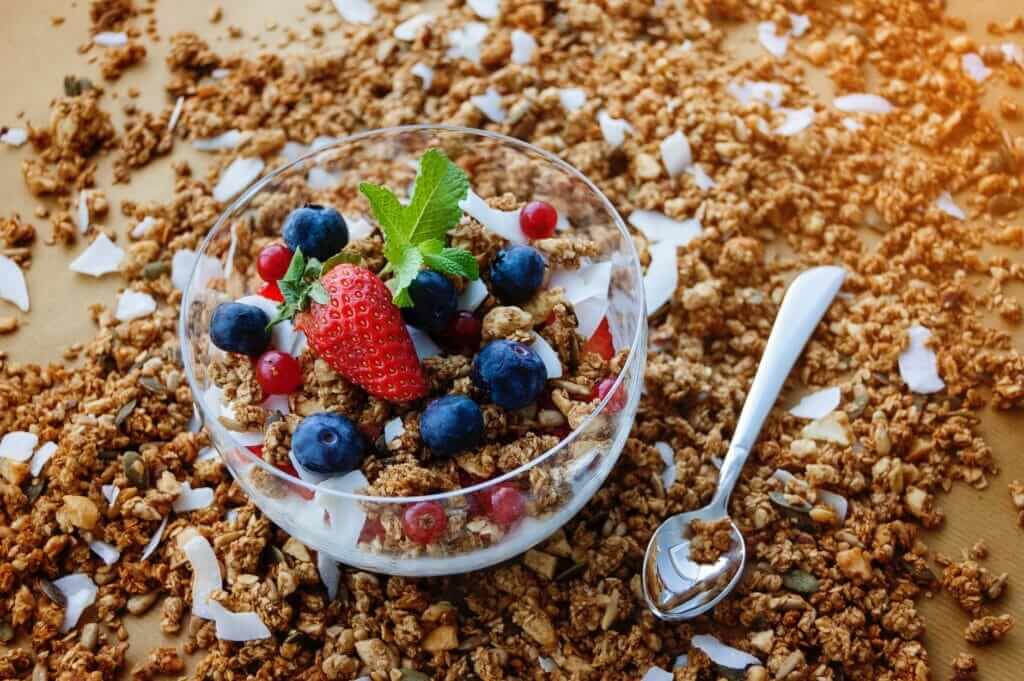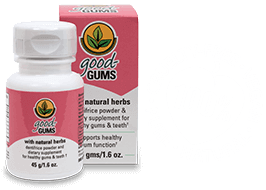6 Surprisingly Sugary Foods

By now, many of us are aware of the detrimental effects too much sugar has on our overall health.
Excess sugar consumption has been linked to diabetes, heart disease, mood swings, obesity, and even cancer. And of course, don’t forget an eroding of those pearly whites!
A lot of the time we don’t realize how much sugar we’re consuming because of all the hidden sugars in so many foods that we assume are good for us.
As we mentioned in our previous article ‘5 Easy Ways To Cut Down On Sugar’, a lot of food labeled low-fat’ or ‘light’ often contains way more sugar than the regular full-fat versions.
Let’s get sugar smart!
Here are 6 foods that contain a lot more sugar than you may think!

Low-fat yogurt
Yogurt can be one of the most nutritious foods out there, but not all yogurt is created equal! Like with all food, the least amount of processes it goes through the better.
A single cup of low-fat yogurt (245g) can contain up to 47 grams of sugar (12 teaspoons), which is way more than the recommended daily allowance for men and women in the US (35g of sugar for men, 25g of sugar for women). So for women, a single cup of low-fat yogurt contains almost twice the recommended daily allowance of sugar! Mmm. And we are told that it’s supposed to be good for us?
When choosing a healthy yogurt, we recommend you choose Greek, full-fat, natural yogurt and avoid yogurts that have been sweetened with ‘natural’ flavorings.
Condiments
It may seem like that small dollop you squirt onto your plate to accompany your French fries is pretty harmless, but sauces like BBQ, ketchup and sweet chili are absolutely packed full of sugar. One substantial serving of ketchup can contain up to one tablespoon of sugar!
But if you really can’t have your fries without a generous helping of sauce, then we recommend you check the back of the labels and go for the sauces that contain the least amount of sugar.
Fruit Juice
Despite seeming like the healthy choice, most fruit juices are loaded with sugar. Many brands like to tout the terms ‘all-natural flavors’ and ‘no added sugar’, and while we do not disagree with some of their nutritional claims when it comes to sugar content, they rank right up there with soda!
Even if fruit juice is labeled ‘100% freshly squeezed’ or ‘not from concentrate’, after being squeezed from the fruit, the juice is usually kept in an oxygen-depleted holding tank where it is stored for up to a year before getting packaged and sold. To keep the juice fresh tasting and flavorsome, manufacturers have to add ‘flavor packs’ to the de-oxygenated juice. Flavor packs have been chemically manipulated from orange by-products, which, you guessed it, are absolutely packed full of sugar.
Even if you’re buying the highest quality fruit juice from your supermarket, it is still far from its original state. And if you’re buying cheap, low-quality fruit juice, it’s pretty much the same as buying fruit-flavored sugar water. So better stick to real fruit juices with real fruit.
Pasta Sauces
When we’re sitting down to enjoy a nice home-cooked spaghetti meal made with our favorite Ragu sauce, we don’t usually think that we’re eating something full of sugar. While most pasta sauces will have naturally occurring sugar from the tomatoes, many will have a lot of sugar added to them.
A single cup of pasta sauce (245g) contains 16 grams of sugar (4 tablespoons). So it’s best to try and make your own sauce from scratch.
But If you really do love your pasta sauces and are short on time, then try and choose a sauce with the lowest sugar content.
Cereal
There are probably more varieties of cereals in supermarkets today than there are with any other food! From honey nut clusters to frosted flakes, all the way to your classic cornflakes, there are almost too many tempting breakfast goodies to choose from. But one thing that most of them have in common: they are loaded with added sugar.
And again, watch out for those low-fat, fruity options. Many of the low-fat raisin brans have a whopping 19g of sugar per serving! That’s 60% of your recommended daily allowance!
For a healthy breakfast option, it’s best to make your own porridge with plain oats and fresh fruit. And for an extra treat, add some peanut butter and honey!
Protein bars
These are usually marketed as the healthy option compared to other snack bars because their protein content helps to keep you fuller longer, which is supposed to help with weight loss. But truth be told, some of them have up to 30g of sugar, making them about as healthy as a candy bar.
And the ones that are ‘fat-free’ or ‘low in sugar’ are usually packed full of chemically altered ingredients and artificial sweeteners that are very harmful to your health. If you want a healthy protein filled snack, grab a pack of nuts or dip a chunk of apple into some peanut butter! Yum!

The Takeaway
Next time you’re at the supermarket looking for healthy options, keep your sugar intake in check with these 4 tips:
- Check the ingredients list
If sugar is listed as one of the top ingredients and is more than 10-15g of sugar per 100g, you’re hitting the high sugar content realms! - Don’t let the serving size fool you
Most products will give you nutritional advice for serving sizes of ¼ or ½ cup but if you’re honest with yourself, will you really only eat ¼ cup? - Make it yourself
When you can, try and cook from scratch so you know exactly how much sugar you’re using. - Still enjoy your favorite treats, in moderation
We all have treats that we can’t live without, so allow yourself to indulge every once in a while. Just keep that ¼ cup in mind!

Subscribe To Our Newsletter
Be the first to receive all our news, offers and natural oral health tips and articles.


